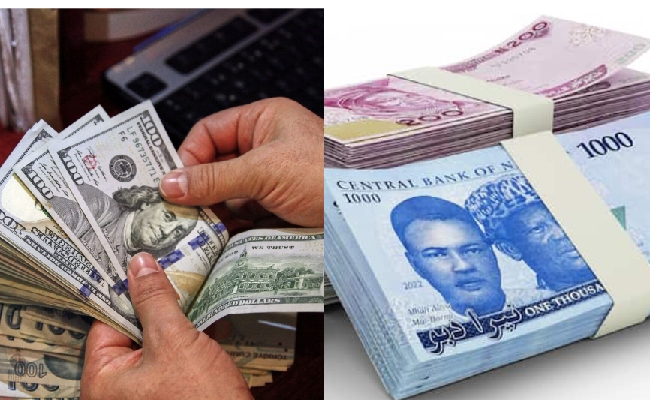Over the weekend, the Nigerian naira showcased signs of resilience as it appreciated by N125 against the United States dollar, reaching N1,275/$1.
This surge, marking a 9.8% increase from Friday’s close of N1,400/$1, comes amid concerns over the currency’s stability.
Addressing the pressing issue, the Senate, through its Committee on Finance, emphasised the necessity for concerted efforts from all stakeholders to rescue and maintain the stability of the naira.
The Senate highlighted the urgent need to tackle the continuous depreciation of the naira, attributing it to various factors, including trading uncertainty in the market.
Currency traders at the Wuse Zone 4 market echoed concerns, emphasizing the need for decisive action from the government to either increase or devalue the currency for market stability. Amid the volatile market conditions, traders refrained from providing a selling rate for Sunday, citing the absence of trading activity.
Malam Yahu Ibrahim, a trader, expressed the challenges faced by operators due to the Naira’s instability, urging the government to take decisive action to mitigate fluctuations. Another trader, Abubakar Taura, highlighted the uncertainty surrounding trading activities, citing concerns over potential drastic measures by the Central Bank of Nigeria (CBN) to stabilize the Naira.
The recent appreciation coincides with plans by the Association of Bureaux De Change Operators of Nigeria to unify the retail end of the foreign currency market. ABCON President, Aminu Gwadabe, emphasized measures aimed at tackling volatility and enhancing regulatory compliance within the market segment.
However, before this marginal gain, the Naira had experienced a significant loss of 26.2% within two weeks, reflecting challenges in maintaining stability. Last Monday, the Central Bank of Nigeria allocated $15.83 million to 1,583 BDC operators to enhance liquidity in the unofficial market.
Despite these efforts, data from FMDQ securities exchange indicated a continued downward trend of the Naira against the dollar at the official foreign exchange window, closing at N1,339/$ on Friday. This underscores the need for proactive measures to safeguard the stability and resilience of the Nigerian economy.
In response, the Senate Committee on Finance, led by Senator Sani Musa, expressed deep concern over the depreciation of the Naira, stressing the importance of proactive measures to address the root causes. The Committee vowed to collaborate with relevant stakeholders to implement effective policies and strategies aimed at mitigating the impact of Naira depreciation and fostering economic stability.
As Nigeria navigates these economic challenges, the call for vigilance and resilience remains paramount, with the hope of overcoming obstacles and charting a path towards prosperity for all citizens.



